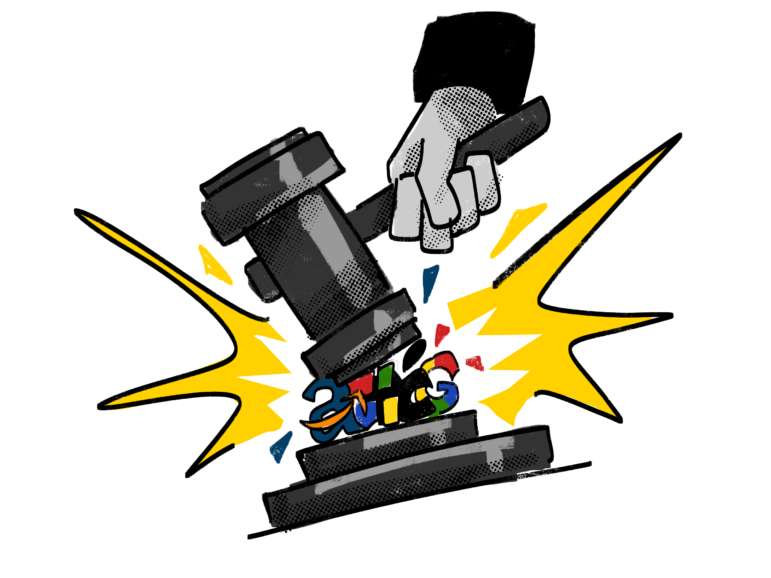
On Aug. 5, Google lost one of its two antitrust cases: a lawsuit was filed on Oct. 20, 2020, where the Department of Justice and a group of multiple states accused Google of monopolizing the online search market.
Antitrust laws prevent monopolies from forming by regulating business practices and ultimately promote competition between companies in the industry. One major antitrust case was the 1998 Microsoft lawsuit, in which the DOJ accused the tech company of exercising a monopoly in personal computer operating systems; this ruling set the precedent for future decisions. This led the US District Court to order that Microsoft be broken up into two separate units: one to produce the operating system and the other for software components.
This case called into question whether or not big tech companies had too much power. Recent antitrust rulings from the DOJ and the Federal Trade Commission have helped diminish the control of these companies and bring back competition.
“Antitrust law says you can’t have all the gas stations on one corner get around a table and say, ‘okay, today it’s going to be $5,’” said Colin Johnson, College of San Mateo instructor and Aragon business teacher. “We have agencies like the Better Business Bureau, where if a business is exploiting consumers, then we have means of objection … [Antitrust] wants the marketplace to allow multiple players to exist, because if there are other players, then those players [aren’t] going to be able to exploit the consumer.”
Recently, the DOJ also filed a lawsuit against RealPage, a real estate software company whose technology allowed landlords to collectively raise rents. Antitrust rulings like this one can benefit consumers in the long run, allowing businesses to reframe their main goal and incentive.
“Antitrust laws give consumers more options,” said junior Erin Finn. “It encourages lower prices and better products.”
Other major tech companies like Apple, Meta and Amazon, have also been involved in recent antitrust cases. The DOJ filed a lawsuit against Apple in March for keeping consumers reliant on Apple smartphones by blocking companies from offering apps that would directly compete with Apple applications. Additionally, the FTC has filed a lawsuit against Amazon in Sept. 2023 for favoring its own brands over other third-party sellers, with their trial set for 2026. Although the companies have asked for their cases to be dismissed, all three are ongoing.
A month after being declared a monopoly, the DOJ accused Google of controlling the ad exchange market as well.
“The Google ecosystem is largely ad-driven,” Johnson said. “It [has] an enormous amount of power within the browser industry, [but] it uses that to feed its ad business … So I guess the big question on the Google front is [if it is] an issue of how advertising is being informed and directed.”
Antitrust rulings also impact the economy positively due to increased consumer spending.
“When products are better and when products are cheaper, people want to buy more,” Finn said. “And that has a good ripple effect throughout the economy. Consumers spend less, so they have more money for other things, which helps a lot.”
On May 23, the DOJ also sued Ticketmaster, an entertainment and distribution company, accusing the company of running a monopoly over primary ticketing by having exclusive agreements with venues when ticket prices were skyrocketing.
“Should you really be paying $200 for all those concert tickets?” Finn said. “It’s insane … that they can just put 80% fees, and because it’s the only option [for tickets], you just have to be like ‘okay, whatever.’”
The Google advertisement case is currently underway. Closing arguments will be delivered on Nov. 25.


